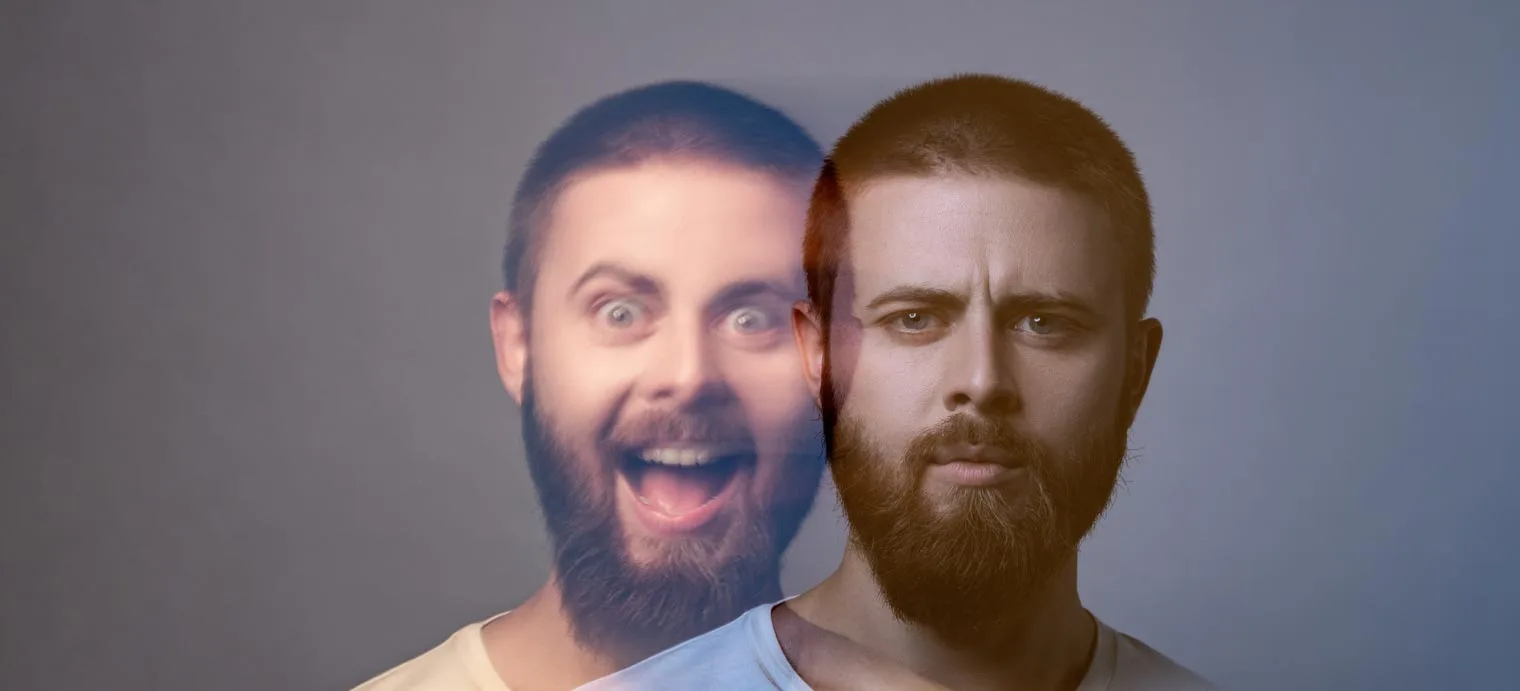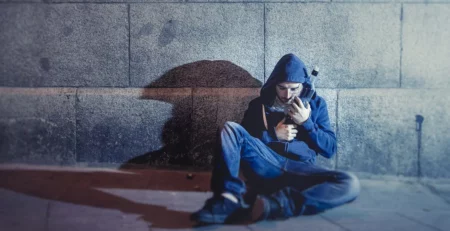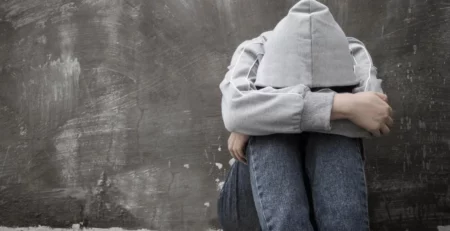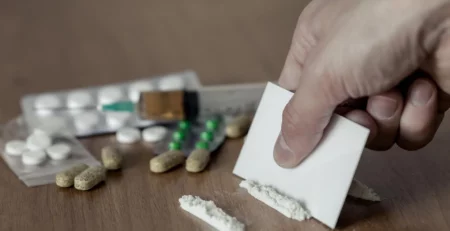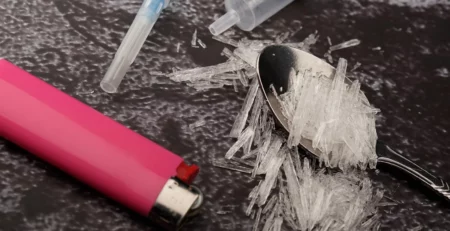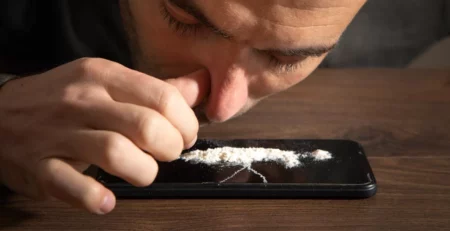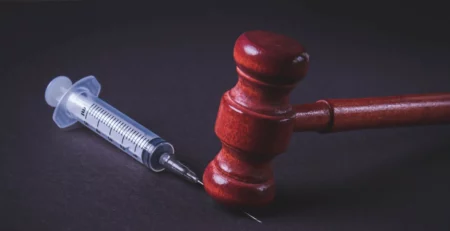Cocaine and Bipolar Disorder
Get Answers and Dual Diagnosis Treatment Options at Icarus Nevada
What’s the connection between cocaine and bipolar disorder? It turns out that the two diseases often overlap. They often have devastating consequences, especially when using cocaine for an extended period. Substance abuse is a frequent coping mechanism for people with bipolar disorder.
If you or a loved one have found our resource and are seeking support, you may already be aware of the links between cocaine and the highs and lows brought on by bipolar symptoms.
In many cases, our former clients at Icarus Nevada have used cocaine to self-medicate, even as a mood stabilizer to manage their manic symptoms or hypomanic episodes. Such clients often believe this serious mental illness can be managed without professional help.
But as we find out, this is not accurate. The symptoms and swings of bipolar disorder increase with stimulant use, making matters worse for all. But there is hope to get off this chaotic roller coaster ride, with proven programs for dual diagnosis treatment at Icarus.
Icarus Behavioral Health Nevada specializes in helping all people who abuse drugs by addressing the underlying causes for our use in the first place. We understand that people with a dual diagnosis – two or more mental health conditions – are at an increased risk for complications and need comprehensive, effective care.
We invite you to keep reading this post to learn more about the complex connection between cocaine and bipolar disorder, and how to get proven support for both at Icarus in Nevada!
The Relationship Between Mental Health and Drug Abuse

According to the CDC, the number of adults who have depression or anxiety is approximately 18.4% in the United States. Mental illness is often part of an individual’s substance or drug abuse experience. That is because illicit drugs can temporarily ease the discomfort or stress caused by a mental illness.
But it’s not an appropriate remedy; the mental health symptoms often worsen. A substance abuser may cause psychological disorders and substance use disorder as a result.
The National Epidemiologic Survey on Alcoholism and Related Conditions interviewed 43,093 people. Their results show a high coincidence of a dual diagnosis of substance use disorder and a mental health diagnosis.
Those findings may help explain the reason why cocaine and bipolar disorder are common comorbid substance use disorders.
Get Effective Mental Health Treatment – Call Now!
Casey Finds Icarus for Effective Cocaine and Bipolar Disorder Treatment
Growing up, people always described Casey as “really sensitive” or “moody.” Her parents chalked up the extreme mood swings to teenage hormones and told her to “deal with it.” They weren’t trying to be callous. They just did not realize that the mood instability came from something more dangerous – they’d never even heard of mood disorders.
Casey’s mood disorder worsened as she entered adulthood. She didn’t consider it further because her parents had brushed it off. She went through college, fluctuating from being the life of the party every Saturday night to staying in her dorm room crying. One of her roommates introduced Casey to cocaine, which helped her switch back to being her usual party-girl self – her friends liked her much better that way!
After graduating, Casey returned to her parents’ home to look for work. It wasn’t until she had a minor car accident and failed a sobriety test that they became aware of her cocaine abuse and possible addiction. Casey was still on her mom’s insurance policy, and they discovered that she was eligible for drug addiction treatment.
Shortly after Casey went to Icarus, she learned that she had a diagnosis of Bipolar 2, a mood disorder. The drug abuse counselors helped Casey detox and heal from the cocaine abuse. Plus, they found a prescription mood stabilizer that worked wonders to manage the moodiness.
Casey is much better now, and she’s using her life experience in her career. She’s working as a social worker and plans on pursuing a Master’s program so she can help others with bipolar symptoms.
What Is Bipolar Disorder? Understanding the Bipolar Spectrum

Bipolar disorder is a complicated mood disorder, formerly called manic depression. People who have it often have extreme mood swings, moving between highs or manic episodes and lows or depressive symptoms. It further breaks down into three main categories: Bipolar 1, Bipolar 2, and Cyclothymic Disorder.
Understanding the Clinical Definition of Bipolar Disorder
SAMHSA, the Substance Abuse and Mental Health Service Administration. offers this definition:
“Forms of bipolar disorder present as serious mental illnesses that causes unusual shifts in mood, ranging from extreme highs (mania or “manic” episodes) to lows (depression or “depressive” episode).”
That’s a concise general definition; the next sections take a closer look at the three main types of bipolar disorder.
The Cycle of Bipolar i Disorder
People with bipolar i disorder have intense manic episodes that can last a week or more. The symptoms might become so severe that they require inpatient hospital care. Depressive symptoms follow those highs. A major depressive episode can last for at least two weeks before the cycle starts over.
Most healthcare professionals consider Bipolar ii Disorder the more severe of the two types.
The Bipolar ii Disorder Cycle
Bipolar ii disorder is less severe than Bipolar 1; however, it can still be debilitating.
People with Bipolar Disorder 2 experience a similar pattern of depressive episodes followed by a hypomanic episode. Hypomania can be less severe in Bipolar 2; however, the depressive episodes can still be severe.
The Cycles of Cyclothymic Disorder
As mentioned before, cyclothymic disorder (CD) is a third type of mood disorders. CD brings fluctuations between milder depression symptoms and hypomanic episodes. However, these changes will persist for as long as two years.
Clinicians usually diagnose CD when mood swings are debilitating but not severe enough for a diagnosis of Bipolar 1 or 2.
Bipolar Symptoms to Know if You Suspect It is an Issue

If you believe that you or a loved one has bipolar and needs mental health support and solutions, here are some behaviors that show you should seek professional guidance:
What are the Symptoms of a Manic Episode? (Bipolar I)
These are some signs of a manic episode in Bipolar Disease I:
- Elevated energy levels; restlessness
- Euphoric mood
- Irritable behavior; aggression
- Less tired; don’t feel sleepy
- Racing thoughts
- Overly talkative; fast rate of speech
- Risky behaviors and poor judgment
In the most severe manic episodes, hallucinations or delusions may also present; however, these are rarer than the rest of the list.
Similar to the Symptoms of a Hypomanic Episode (Bipolar 2 and CD)
Here are the typical behaviors of hypomania:
- Irritability
- High energy levels
- Less demand for sleep
- Easily distracted
- Racing thoughts
- Increase in self-confidence
- Impulsive behaviors
These are typical signs of Bipolar 2 and CD.
What are the Symptoms of Depressive Episodes? (All BD Patients)
All people with bipolar disorder have similar depressive episodes or lows. Here are some usual behaviors:
- Feeling sad or hopeless
- Disinterest in everyday activities
- Weight loss; weight gain; appetite changes
- Changes in sleep patterns
- Restlessness
- Lack of energy; fatigue
- Feeling worthless or guilty
- Mood instability
In the most severe cases, the person can have suicidal ideations. Do not second-guess this notion – call 911 or the Suicide and Crisis Helpline by dialing 988 immediately.
Cocaine Use Disorder Changes the Brain and Worsens Mental Illness

Cocaine alters the brain by changing the dopamine system. In other words, it sends signals of reward that lead to euphoria. As a result, repeated use impairs the brain’s natural reward system. That also means the brain becomes ever more dependent on cocaine to experience happiness.
But it’s even worth it for someone with a dual diagnosis. That’s because it also interrupts other neurotransmitters that help in regulating moods.
Besides bipolar disorder, cocaine can worsen anxiety disorders, antisocial personality disorder, and other co-occurring disorders. It’s also frequent that we see alcohol abuse combined with cocaine and bipolar.
What are the Typical Signs of a Cocaine Addiction?
An addiction can include the use of powder cocaine, crack cocaine, and any route of taking the drug, from snorting to smoking or injecting it. Here are a few signs to know if you suspect someone you love has a cocaine addiction:
- Someone used to use cocaine casually, but now they need to use it more often
- Onset of withdrawal symptoms after stopping use
- Obsessing about finding more drugs
- Failing to uphold important responsibilities, including kids or jobs
- Financial difficulty due to prioritizing drug abuse
- Criminal activity (buying or even selling crack cocaine to fund the habit)
- Mood swings
- Erratic behaviors or risk-taking
These signs, especially when you suspect bipolar disorder and cocaine together, require the help of professional facilities such as ours. Having two diagnoses at the same time, or co-occurring disorders, makes the situation more urgent to treat.
Get 24 Hour Substance Abuse Rehab Hotline – Call Now!
Bipolar Disorder Treatment and Substance Abuse Treatment Are Inseparable
Cocaine and bipolar disorder, as a dual diagnosis, require comprehensive care. Clients with both conditions have the highest rates of long-term recovery in a residential setting like Icarus Behavioral Health Nevada.
Under the care of our specially trained drug abuse counselors, clients can work on healing issues with cocaine while receiving bipolar disorder treatment. Both the substance abuse and the mental health components need intensive care. However, they also each require a knowledgeable team to heal both.
Think of it as untangling a snarled spool of yarn with both ends sticking out. The strings are interwoven, and when you pull on one end, it influences the other. It takes careful maneuvers (and a lot of patience) to successfully unwind the knot without snapping the yarn in two. Similarly, professionals at a rehab center have the necessary tools to unwind mental health’s delicate nature from the co-occurring cocaine abuse.
Cocaine Use Disorder, Bipolar Disorder, and 6 Effective Approaches for Treatment

Treating both bipolar disorder and substance abuse demands a multi-pronged approach. After medically supervised detox, clients will receive numerous therapies. All clients are different, so no two programs are identical. However, it usually combines recovery from a diagnosable substance use disorder along with management strategies for bipolar disorder.
Here are a few mental health and recovery strategies you’ll see at Icarus:
1) Medical Detox to Stop the Substance Use
Medical detox is the first hurdle to leap when entering recovery. During this time, the body metabolizes the remaining traces of cocaine, alcohol, or other substances that may be present. Most people fear this time. But it does not need to be as overwhelming as you might have heard. The difference-maker is medical detox.
Detoxing in a medical setting is a must. In fact, it is the safest detox method. Going cold turkey or detoxing alone at home can put you at an increased risk of complications. As the cocaine leaves your body, you can have withdrawal symptoms ranging from moderate to severe. Some of these, such as vomiting, can cause dehydration, even to the point of becoming life-threatening.
In a medical detox environment, you have a team of specialists who will help minimize the most uncomfortable symptoms of withdrawal. We will watch for any emergencies and give you medications as needed.
After you detox, you can move on in therapy and start addressing both the cocaine addiction and the bipolar disorder.
2) Cognitive Behavioral Therapy: Effective in Co-Occurring Disorder Treatment
This psychotherapy helps people identify their negative thoughts and behaviors. Then, they seek ways to replace them by using healthier coping strategies. This therapy is evidence-based and incredibly effective for many mental health disorders, as well as an effective help for people abusing cocaine.
3) Contingency Management to Restore the Brain’s Natural Wiring
A recent systematic review found that contingency management programs, which feature incentives to replace the reward felt when high on cocaine, can be beneficial. Earlier, we mentioned how cocaine rewires the brain’s dopamine delivery.
Consider this contingency management therapy a “reset,” helping the brain learn once again to be happy without cocaine.
4) Motivational Interviewing About Cocaine Use
This therapy helps the client see how their cocaine use or other drug abuse impacts both themselves and those around them. Understanding how the substance abuse has harmed their loved ones can give them the determination to continue to work hard in therapy.
5) Medically-Assisted Treatment for Effective Bipolar Disorder Treatment
While bipolar disorder is not curable, per se, most people can learn techniques to manage it. One of the most common techniques is medically-assisted treatment, or administering prescription medications to improve the person’s quality of life. When someone has an addiction to cocaine and bipolar treatment as a dual diagnosis, this will include the above therapies.
6) Support Groups Can Be a Lifeline

People who have bipolar disorder are at an increased risk of self-harm and suicide more than the general population. You will have access to group therapy during the time you spend at Icarus. That brings you into a community of others who share your struggles with addiction or mental disorders. It can be incredibly healing to realize that you are not alone in your addiction.
After you leave the treatment facilities, you can find community support from 12-step programs, such as Alcoholics Anonymous (AA), Narcotics Anonymous (NA), or SMART Recovery programs.
Up To 100% of Rehab Costs Covered By Insurance – Call Now!
Get the Help You Need for Bipolar Disorder and Cocaine Abuse
If you or your loved one has bipolar disorder and also a cocaine addiction, trying to quit the drugs at home presents serious risks. We know that cocaine use probably began as a way to cope with the mental health symptoms stemming from bipolar disorder. But now, both are spinning off the rails.
If that sounds familiar, we invite you to contact Icarus Behavioral Health in Nevada. We have a deep understanding of how these two conditions intersect. More importantly, we know how to unravel one from the other and use evidence-based therapies for long-term healing.
Reach out to us now – all calls are confidential, and we will provide options for support today!

